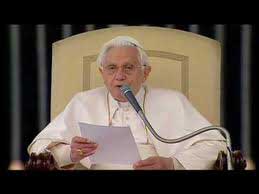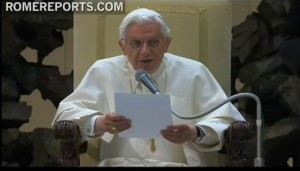Episode 5 Beginning to Pray: Â “Heaven in Faith” Â Day 3 Prayer 1 – “We will come to him and make our home in him“
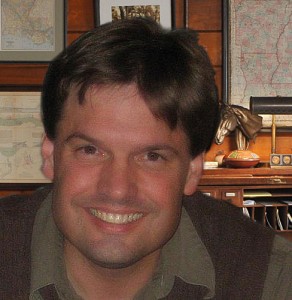
[powerpress]
Dr. Anthony Lilles is a Catholic husband and father of three teaching Spiritual Theology at St. John Vianney Theological Seminary. He  teaches spiritual theology and spiritual direction to transitional deacons, and the spiritual classics to the men who enter the Spirituality Year, a year of prayer in preparation for seminary formation.  He is the author of the “Beginning to Pray”  catholic blog spot.
From “Heaven in Faith: Day 3 Prayer 1” found in The Complete Works vol 1:
8. … “Each incident, each event, each suffering, as well as each joy, is a sacrament which gives God to it; so it no longer makes a distinction between these things; Â it surmounts them, goes beyond them to rest in its Master, above all things. Â It “exalts” Him high on the “mountain of its heart,” yes, “higher than His gifts, His consolation, higher than the sweetness that descends from Him.” “The property of love is never to seek self, to keep back nothing, but to give everything to the one it loves.” Â “Blessed the soul that loves” in truth; “the Lord has become its captive through love”!
For other episodes in the series visit the Discerning Hearts page for Dr. Anthony Lilles
We would like to offer heartfelt thanks to
Miriam Gutierrez for providing for us “the voice” of Blessed Elizabeth for this series
Tags: blessed elizabeth of the trinity, carmelite, catholic, catholic podcast, catholic prayer, cathollc spirituality, heaven in faith
This entry was posted on Sunday, February 5th, 2012 at 9:48 am
You can follow any responses to this entry through the RSS 2.0 feed.
[powerpress]
Msgr. Esseff reflects on Matthew chap 18 v 21-35.  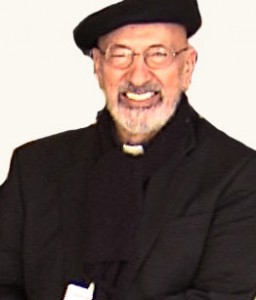 He shares the stories of a woman named Immaculee from Rwanda and young girl named Maria from Lebanon and the damage done by the hatred which is manifested in the world.  We have a capacity for communion…24 hours every day, 7 days a week.  How does that look in the
He shares the stories of a woman named Immaculee from Rwanda and young girl named Maria from Lebanon and the damage done by the hatred which is manifested in the world.  We have a capacity for communion…24 hours every day, 7 days a week.  How does that look in the 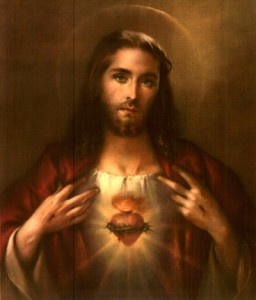 relationship found in marriage?  From childhood, there are deep wounds we carry from our parents…from siblings…or from others. What can cause those wounds?  The bitterness and resentment that we carry…the damage it does to us.  What is the remedy?  The joy of forgiveness…and forgetting.  Msgr. Esseff shares a poignant story of a man named John, and how he came to forgive what many would find “unforgivable”.
relationship found in marriage? Â From childhood, there are deep wounds we carry from our parents…from siblings…or from others. What can cause those wounds? Â The bitterness and resentment that we carry…the damage it does to us. Â What is the remedy? Â The joy of forgiveness…and forgetting. Â Msgr. Esseff shares a poignant story of a man named John, and how he came to forgive what many would find “unforgivable”.
This is the prayer mentioned by Msgr. Esseff in the talk...click here
Be sure to visit Msgr. Esseff’s website….”Building A Kingdom of Love”
Tags: catholic, catholic podcast, catholic prayer, cathollc spirituality, forgiveness, msgr. john esseff, reconciliation, unforgiveness
This entry was posted on Saturday, February 4th, 2012 at 3:49 pm
You can follow any responses to this entry through the RSS 2.0 feed.
VATICAN CITY, 1 FEB 2012 (VIS) – This morning in the Paul VI Hall the Holy Father received thousands of pilgrims from around the world in his weekly general audience. As part of a series of catecheses dedicated to the prayers pronounced by Christ, he focused his remarks on Jesus’ prayer in the Garden of Gethsemane.
Mark the Evangelist narrates how, following the Last Supper, Jesus went to the Mount of Olives and readied Himself for personal prayer. “But this time”, the Pope said, “something new occurred; it seemed that He did not want to remain alone. Many times in the past Jesus had moved away from the crowds, even from His own disciples. … However, in Gethsemane he invited Peter, James and John to stay close by; the same disciples who had accompanied Him during the Transfiguration.
“The proximity of these three during the prayer at Gethsemane is significant”, Benedict XVI added. It represents “a request for solidarity at the moment in which He felt the approach of death. Above all it was a closeness in prayer, an expression of unity with Him at the moment in which He was preparing to accomplish the Father’s will to the end, an invitation to all disciples to follow Him on the path of the Cross”.
Jesus’ words to the three disciples – “I am deeply grieved, even to death; remain here and keep awake” – show that He was feeling “fear and anguish at that ‘Hour’, experiencing the ultimate profound solitude as God’s plan was being accomplished. Jesus fear and anguish comprehend all the horror that man feels at the prospect of his own death, its inexorable certainty and the perception of the burden of evil which affects our lives”.
Having invited His disciples to keep awake, Jesus moved away from them. Referring to the Gospel of St. Mark, the Pope noted that Jesus “threw Himself to the ground: a position for prayer which expresses obedience to the Father’s will, an abandonment of self with complete trust in Him”. Jesus then asks the Father that, if possible, the hour might pass from Him. “This is not just the fear and anguish of man in the face of death”, the Holy Father explained, “but the distress of the Son of God Who sees the terrible accumulation of evil He must take upon Himself, in order to overcome it and deprive it of power”.
In this context, Benedict XVI invited the faithful to pray to God, placing before Him “our fatigue, the suffering of certain situations and of certain days, our daily struggle to follow Him and to be Christians, and the burden of evil we see within and around us, that He may give us hope, make us aware of His closeness and give us a little light on life’s journey”.
Returning then to Jesus’ prayer, the Pope focused on “three revealing passages” in Christ’s words: “Abba, Father, for you all things are possible; remove this cup from me; yet, not what I want but what you want”. Firstly, Benedict XVI said, the Aramaic word “Abba” is used by children to address their fathers, “therefore it express Jesus relationship with God the
Father, a relationship of tenderness, affection and trust”. Secondly, Jesus’ words contain an acknowledgment of the Father’s omnipotence “introducing a request in which, once again, we see the drama of Jesus’ human will in the face of death and evil. … Yet the third expression … is the decisive one, in which the human will adheres fully to the divine will. … Jesus tells us that only by conforming their will to the divine will can human beings achieve their true stature and become ‘divine’. … This is what Jesus does in Gethsemane. By transferring human will to the divine will the true man is born and we are redeemed”.
When we pray the Our Father “we ask the Lord that ‘your will be done, on earth as it is in heaven’. In other words, we recognise that God has a will for us and with us, that God has a will for our lives and, each day, this must increasingly become the reference point for our desires and our existence. We also recognise that … ‘earth’ becomes ‘heaven’ – the place where love, goodness, truth and divine beauty are present – only if the will of God is done”.
In our prayers “we must learn to have greater trust in Divine Providence, to ask God for the strength to abandon our own selves in order to renew our ‘yes’, to repeat to Him ‘your will be done’, to conform our will to His. This is a prayer we must repeat every day, because it is not always easy to entrust oneself to the will of God”.
The Gospel says that the disciples were unable to remain awake for Christ, and Pope Benedict concluded his catechesis by saying: “Let us ask the Lord for the power to keep awake for Him in prayer, to follow the will of God every day even if He speaks of the Cross, to live in ever increasing intimacy with the Lord and bring a little of God’s ‘heaven’ to this ‘earth'”.
Following the catechesis the Holy Father delivered greetings in a number of languages to the pilgrims filling the Paul VI Hall. They included a group of British military chaplains, faithful from Hong Kong and South America, bishops friends of the Sant’Egidio Community from Europe, Asia and Africa, as well as young people and the sick.
AG/ VIS 20120201 (940)
Tags: benedict xvi, catholic, catholic podcast, catholic prayer, cathollc spirituality, pope benedict, pope benedict xvi, prayer
This entry was posted on Saturday, February 4th, 2012 at 12:55 am
You can follow any responses to this entry through the RSS 2.0 feed.
Episode 3 The Daily Prayer of Discernment: The Ignatian Wisdom of the Examen Prayer with Fr. Timothy Gallagher.
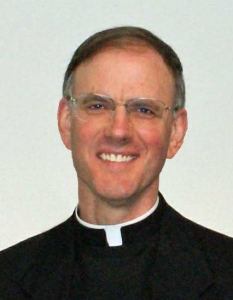 Â The conversation continues on the subject of the first step in the Examen – GRATITUDE. Â Why? Â Because first, above all things, God is love. Â So at the start of the prayer, we should recall the gift of love God has blessed us with that day and give Him thanks and praise….and be concrete. Â Fr. Gallagher offers examples of what that could look like. Â Then the conversation begins on the next step – PETITION. Â Asking God to show you what see clearly the spiritual realities of that day. Â
 The conversation continues on the subject of the first step in the Examen – GRATITUDE.  Why?  Because first, above all things, God is love.  So at the start of the prayer, we should recall the gift of love God has blessed us with that day and give Him thanks and praise….and be concrete.  Fr. Gallagher offers examples of what that could look like.  Then the conversation begins on the next step – PETITION.  Asking God to show you what see clearly the spiritual realities of that day. Â
[powerpress]
As outlined from the Spiritual Exercises of St. Ignatius of Loyola
(translated from the autograph by Fr. E. Mullan, S.J. Â 1909Â in the public domain)
METHOD FOR MAKING THE GENERAL EXAMEN
It contains in it five Points.First Point. The first Point is to give thanks to God our Lord for the benefits received.
Second Point. The second, to ask grace to know our sins and cast them out.
Third Point. The third, to ask account of our soul from the hour that we rose up to the present Examen, hour by hour, or period by period: and first as to thoughts, and then as to words, and then as to acts, in the same order as was mentioned in the Particular Examen.
Fourth Point. The fourth, to ask pardon of God our Lord for the faults.
Fifth Point. The fifth, to purpose amendment with His grace.OUR FATHER.
Father Timothy M. Gallagher, O.M.V., was ordained in 1979 as a member of the Oblates of the Virgin Mary, a religious community dedicated to retreats and spiritual formation according to the Spiritual Exercises of St. Ignatius. Â Fr. Gallagher is featured on the EWTN series “Living the Discerning Life: Â The Spiritual Teachings of St. Ignatius of Loyola”. Â For more information on books and audio available for purchase from Fr. Timothy Gallagher check out his website: www.frtimothygallagher.org
For the other episodes in this series check out
Fr. Timothy Gallagher’s “Discerning Hearts†page
Tags: catholic, catholic podcast, catholic prayer, cathollc spirituality, Examen, Father Timothy M. Gallagher, Timothy Gallagher
This entry was posted on Thursday, February 2nd, 2012 at 7:48 am
You can follow any responses to this entry through the RSS 2.0 feed.
Episode 4 Beginning to Pray: Â “Heaven in Faith” Â Day 2 Prayer 2 – “Hurry and Come Down”

[powerpress]
Dr. Anthony Lilles is a Catholic husband and father of three teaching Spiritual Theology at St. John Vianney Theological Seminary. He  teaches spiritual theology and spiritual direction to transitional deacons, and the spiritual classics to the men who enter the Spirituality Year, a year of prayer in preparation for seminary formation.  He is the author of the “Beginning to Pray”  catholic blog spot.
From “Heaven in Faith: Day 2 Prayer 2” found in The Complete Works vol 1:
8. “As long as our will has fancies that are foreign to divine union, whims that are now yes, now no, we are like children: Â we do not advance with giant steps in love for fire has not yet burnt up all the alloy; the gold is not pure; we are still seeking ourselves; God has not consumed” all our hostility to Him. Â But when the boiling cauldron has consumed “every imperfect love, every imperfect sorrow, every imperfect fear,” “then love is perfect and the golden ring of our alliance is larger than Heaven and earth. Â The is the secret cellar in which love places his elect,” this “love leads us by ways and paths known to him alone and he leads us with no turning back, for we will not retrace our steps.”
For other episodes in the series visit the Discerning Hearts page for Dr. Anthony Lilles
We would like to offer heartfelt thanks to
Miriam Gutierrez for providing for us “the voice” of Blessed Elizabeth for this series
Tags: Anthony Lilles, blessed elizabeth of the trinity, carmelite, catholic, catholic podcast, catholic prayer, cathollc spirituality, heaven in faith, Spiritual Theology, St. John Vianney Theological Seminary
This entry was posted on Tuesday, January 31st, 2012 at 7:15 am
You can follow any responses to this entry through the RSS 2.0 feed.
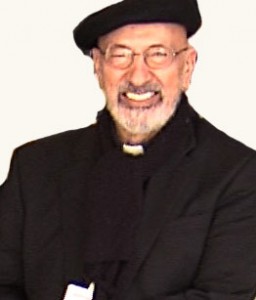 In January 2012, Msgr. Esseff conducted a weekend retreat for the Deacons and Deacon-Candidates and their wives of the Diocese of Fargo.
In January 2012, Msgr. Esseff conducted a weekend retreat for the Deacons and Deacon-Candidates and their wives of the Diocese of Fargo.
[powerpress]
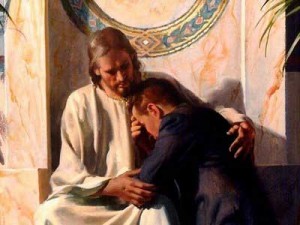 The subject is GRACE and the life of Jesus we receive in Baptism.  From Ephesians Chap 4 v 7 -16, Msgr. Esseff discusses what he calls “that most magnificent passage” which transforms us.  What made the transformation occur?  What is Original Sin? He reflects on the fall of our first parents and the broken relationship with God, and God’s gift of the Son.  The importance of the Blessed Virgin Mary…the first person to receive the revelation of the Trinity.  The tremendous moment of PENTECOST.  What is Sanctifying Grace?  What does it mean to have Jesus within us and what are we called to do?  How can we forgive, especially the deepest wounds?  Being like Jesus, we depend completely on the Father.  The lie of the “I can do anything” attitude.  The beauty of Galatians 2:20.  Ask God to help you discover your true self in Him.
The subject is GRACE and the life of Jesus we receive in Baptism.  From Ephesians Chap 4 v 7 -16, Msgr. Esseff discusses what he calls “that most magnificent passage” which transforms us.  What made the transformation occur?  What is Original Sin? He reflects on the fall of our first parents and the broken relationship with God, and God’s gift of the Son.  The importance of the Blessed Virgin Mary…the first person to receive the revelation of the Trinity.  The tremendous moment of PENTECOST.  What is Sanctifying Grace?  What does it mean to have Jesus within us and what are we called to do?  How can we forgive, especially the deepest wounds?  Being like Jesus, we depend completely on the Father.  The lie of the “I can do anything” attitude.  The beauty of Galatians 2:20.  Ask God to help you discover your true self in Him.
Be sure to visit Msgr. Esseff’s website “Building a Kingdom of Love”
Tags: catholic, catholic podcast, catholic prayer, cathollc spirituality, Esseff, John Esseff, msgr. john esseff, the Life of Jesus
This entry was posted on Tuesday, January 31st, 2012 at 12:04 am
You can follow any responses to this entry through the RSS 2.0 feed.
Episode 3- The School of Prayer: Reflections on the teachings of Pope Benedict XVI –  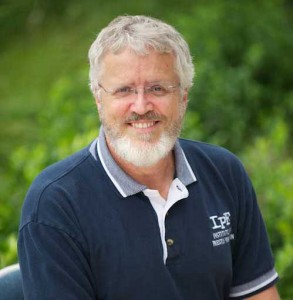 Abraham the great Patriarch who prays in intercession for Sodom and Gomorrah.  The mystery of intercessory prayer and God’s great mercy.  When we persist in prayer, like Abraham, the more we come to know God and trust in His love for us.  How sin corrupts our capacity to receive God’s movement of protection and love.  How the sacrifice of Christ opens the door to the mystery.  If we can learn how to pray, then we learn how to be loved.  How do we pray for others?
Abraham the great Patriarch who prays in intercession for Sodom and Gomorrah.  The mystery of intercessory prayer and God’s great mercy.  When we persist in prayer, like Abraham, the more we come to know God and trust in His love for us.  How sin corrupts our capacity to receive God’s movement of protection and love.  How the sacrifice of Christ opens the door to the mystery.  If we can learn how to pray, then we learn how to be loved.  How do we pray for others?
[powerpress]
Deacon James Keating, PhD, the director of Theological Formation for the Institute for Priestly Formation, located at Creighton University, in Omaha.
From  Pope Benedict’s 3 audience on prayer:
This is the power of prayer. For through intercession, the prayer to God for the salvation of others, the desire for salvation which God nourishes for sinful man is demonstrated and expressed. Evil, in fact, cannot be accepted, it must be identified and destroyed through punishment: The destruction of Sodom had exactly this function.
For more information on the “Institute of Priestly Formation†and for other material available by Deacon Keating, just click here
Don’t forget to pickup a copy of “Communion with Christ†, it is one of the best audio sets on prayer…ever!
Check out Deacon Keating’s “Discerning Heart†page
Tags: catholic, catholic podcast, catholic prayer, cathollc spirituality, james keating, pope benedict, pope benedict xvi
This entry was posted on Monday, January 30th, 2012 at 8:47 am
You can follow any responses to this entry through the RSS 2.0 feed.
 In January 2012, Msgr. Esseff conducted a weekend retreat for the Deacons and Deacon-Candidates and their wives of the Diocese of Fargo.
In January 2012, Msgr. Esseff conducted a weekend retreat for the Deacons and Deacon-Candidates and their wives of the Diocese of Fargo.
[powerpress]
The subject is PRAYER.  From Luke Chap 11 v 1-13, Msgr. Esseff discusses how little we know how to pray and how to receive.  He reflects on the Blessed Virgin Mary’s teaching to St. Catherine Laboure about prayer.  Then he offers the proper movement of prayer:
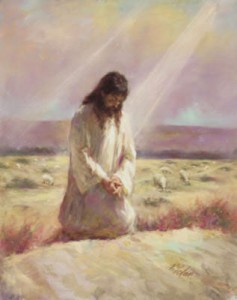
1. Â “Be there with Him and for Him”
2. Â “You have to want Him” Â Intensify the desire of relationship with God.
3. Â “Listen to Him”
- A – Acknowledge (What’s going on in your heart)
- R – Relay that to God
(Tell God – Father, Son and the Holy Spirit
and the Blessed Virgin Mary – about that experience) - R – Receive (What is God going to tell me about what I told Him)
- R – Respond
4. Â “Let Him” Â (Surrender to God)
What happens when we encounter the Holy Eucharist
What happens when we encounter the Living Word of God
Be sure to visit Msgr. Esseff’s website “Building a Kingdom of Love”
Tags: catholic, catholic podcast, catholic prayer, cathollc spirituality, Esseff, John Esseff, msgr. john esseff, prayer
This entry was posted on Sunday, January 29th, 2012 at 5:09 pm
You can follow any responses to this entry through the RSS 2.0 feed.
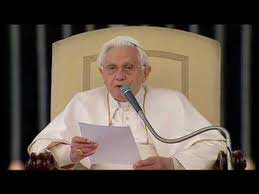
VATICAN CITY, 25 JAN 2012 (VIS) –
Benedict XVI dedicated his catechesis during this morning’s general audience to Christ’s priestly prayer during the Last Supper, as narrated in chapter 17 of the Gospel of St. John. In order to understand this prayer “in all its immense richness”, said the Pope, it is important to see it in the context of the Jewish feast of atonement, Yom Kippur, in which the high priest seeks atonement first for himself, then for the order of priests and finally for the community as a whole. Likewise, “that night Jesus addressed the Father at the moment in which He offered Himself. He, priest and victim, prayed for Himself, for the Apostles and for all those who would believe in Him”.
The prayer which Jesus prays for Himself is the request for His own glorification. “It is in fact more than a request”, the Holy Father said, “it is a declaration of willingness to enter freely and generously into the Father’s plan, which is accomplished through death and resurrection. …
Jesus begins His priestly prayer by saying: ‘Father, the hour has come; glorify your Son so that your Son may glorify you’. The glorification Jesus seeks for Himself, as High Priest, is to be fully obedient to the Father, an obedience which leads Him to fulfil His filial status: ‘So now, Father, glorify me in your own presence with the glory that I had in your presence before the world existed'”.
The second part of Jesus’ prayer is His intercession for the disciples who have followed Him, and His request that they may be sanctified. Jesus says: ‘They do not belong to the world, just as I do not belong to the world. Sanctify them in the truth’. Benedict XVI explained how “To sanctify means to transfer something – a person or an object – to God. This involves two complementary aspects: on the one hand, the idea of ‘segregation’ … from man’s personal life in order to be completely given over to God; on the other hand there is the idea of ‘being sent out’, of mission. Having been given to God, the consecrated thing or person exists for others. … A person is sanctified when, like Jesus, he is segregated from the world, set aside for God in view of a task and, for this reason, available for everyone. For disciples this means continuing Jesus’ mission”.
In the third phase of the priestly prayer, “Jesus asks the Father to intervene in favour of all those who will be brought to the faith by the mission inaugurated by the Apostles. … ‘I ask not only on behalf of these, but also on behalf of those who will believe in me through their word’. … Jesus prays for the Church in all times, He also prays for us. … The main element in Jesus’ priestly prayer for His disciples is His request for the future unity of those who will believe in Him. This unity is not a worldly achievement. It derives exclusively from divine unity and comes down to us from the Father, through the Son and in the Holy Spirit”.
By this priestly prayer Jesus establishes the Church, “which is nothing other than the community of disciples who, through their faith in Christ as the One sent by the Father, receive His unity and are involved in Jesus’ mission to save the world by leading it to a knowledge of God”.
Benedict XVI invited the faithful to read and meditate upon Jesus priestly prayer, and to pray to God themselves, asking Him “to help us enter fully into the plan He has for each of us. Let us ask Him to consecrate us to Himself, that we may belong to Him and show increasing love for others, both near and far. Let us ask Him to help us open our prayers to the world, not limiting them to requests for help in our own problems, but remembering our fellow man before the Lord and learning the beauty of interceding for others. Let us ask Him for the gift of visible unity among all those who believe in Christ, … that we may be ready to respond to anyone who asks us about the reasons for our hope”.
At the end of his audience, Benedict XVI delivered greetings in various languages to the pilgrims and faithful gathered in the Paul VI Hall, reminding them that today’s Feast of the Conversion of St. Paul marks the end of the Week of Prayer for Christian Unity. Addressing Polish faithful he said: “The conversion of the Apostle of the Gentiles near Damascus is proof that, in the final analysis, it is God Himself Who decides the destiny of His Church. Let us ask Him for the grace of unity, which also requires our individual conversion, while remaining faithful to the truth and love of God”.
AG/Â Â Â Â Â Â Â Â Â Â Â Â Â Â Â Â Â Â Â Â Â Â Â Â Â Â Â VIS 20120125 (826)
Tags: catholic, catholic podcast, catholic prayer, cathollc spirituality, pope benedict xvi
This entry was posted on Thursday, January 26th, 2012 at 12:02 am
You can follow any responses to this entry through the RSS 2.0 feed.
Episode 3 Beginning to Pray: Â “Heaven in Faith” Â Day 2 Prayer 1 – “The Kingdom of God is Within You”

[powerpress]
Dr. Anthony Lilles is a Catholic husband and father of three teaching Spiritual Theology at St. John Vianney Theological Seminary. He  teaches spiritual theology and spiritual direction to transitional deacons, and the spiritual classics to the men who enter the Spirituality Year, a year of prayer in preparation for seminary formation.  He is the author of the “Beginning to Pray”  catholic blog spot.
From “Heaven in Faith: Day 2 Prayer 1” found in The Complete Works vol 1:
6. The same saint also says that “God is the center of the soul. Â So when the soul with all” its “strength will know God perfectly, love and enjoy Him fully, then it will have reached the deepest center that can be attained in Him.” Â Before attaining this, the soul is already “in God who is its center,” “but it is not yet in its deepest center, for it can still go further. Â Since love is what unites us to God, the more intense this love is, the more deeply the soul enters into God and the more it is centered in Him. Â When it “possess even one degree of love it is already in its center”; but when this love has attained its perfection, the soul will have penetrated into its deepest enter. Â There it will be transformed to the point of becoming very like God.”
For other episodes in the series visit the Discerning Hearts page for Dr. Anthony Lilles
We would like to offer heartfelt thanks to
Miriam Gutierrez for providing for us “the voice” of Blessed Elizabeth for this series
Tags: blessed elizabeth of the trinity, carmelite, catholic, catholic podcast, catholic prayer, cathollc spirituality, heaven in faith
This entry was posted on Tuesday, January 24th, 2012 at 12:50 am
You can follow any responses to this entry through the RSS 2.0 feed.
Episode 2 – The School of Prayer: Reflections on the teachings of Pope Benedict XVI –   Faith and reason in the life of prayer.  Allowing God to effect our minds, as well as our hearts.  If you let God close you will be free…to let him in so close that God prays in you.  Letting God’s love be the norm of our culture…in the other and in the poor.  The role of silence in prayer and posture of kneeling.
Faith and reason in the life of prayer. Â Allowing God to effect our minds, as well as our hearts. Â If you let God close you will be free…to let him in so close that God prays in you. Â Letting God’s love be the norm of our culture…in the other and in the poor. Â The role of silence in prayer and posture of kneeling.
[powerpress]
Deacon James Keating, PhD, the director of Theological Formation for the Institute for Priestly Formation, located at Creighton University, in Omaha.
From  Pope Benedict’s 2nd audience on prayer:
A look at recent history reveals the failure of the predictions of those who, in the age of the Enlightenment, foretold the disappearance of religions and who exalted absolute reason, detached from faith, a reason that was to dispel the shadows of religious dogmatism and was to dissolve the “world of the sacredâ€, restoring to the human being freedom, dignity and autonomy from God. The experience of the past century, with the tragedy of the two World Wars, disrupted the progress that autonomous reason, man without God, seemed to have been able to guarantee.
The Catechism of the Catholic Church says: “In the act of creation, God calls every being from nothingness into existence…. Even after losing through his sin his likeness to God, man remains an image of his Creator, and retains the desire for the one who calls him into existence. All religions bear witness to man’s essential search for Godâ€Â (n. 2566). We could say — as I explained in my last Catecheses — that there has been no great civilization, from the most distant epoch to our day, which has not been religious.
For more information on the “Institute of Priestly Formation†and for other material available by Deacon Keating, just click here
Don’t forget to pickup a copy of “Communion with Christ†, it is one of the best audio sets on prayer…ever!
Check out Deacon Keating’s “Discerning Heart†page
Tags: catholic, catholic podcast, catholic prayer, cathollc spirituality, james keating, pope benedict, pope benedict xvi
This entry was posted on Thursday, January 19th, 2012 at 10:34 pm
You can follow any responses to this entry through the RSS 2.0 feed.
Episode 2 Beginning to Pray: Â “Heaven in Faith” Â Day 1 Prayer 2 – “Abyss calls to Abyss”

[powerpress]
Dr. Anthony Lilles is a Catholic husband and father of three teaching Spiritual Theology at St. John Vianney Theological Seminary. He  teaches spiritual theology and spiritual direction to transitional deacons, and the spiritual classics to the men who enter the Spirituality Year, a year of prayer in preparation for seminary formation.  He is the author of the “Beginning to Pray”  catholic blog spot.
From “Beginning to Pray: Your Life Hidden in Christ“:
Elisabeth of the Trinity says that the journey to contemplative prayer (which she refers to as the pathway of the abyss), requires that we die to trying to live merely by natural lights. Instead we must seek to live hidden with Christ in God. She taught this because she understood the peace and strength such a life provides – she herself thrived in it. Christ is the supernatural Light, the inexhaustible source of loving knowledge of God in our hearts. If we live by the loving knowledge that Christ alone provides we discover that we are invincible to things which “pass away”, for our hearts transcend them, “seeking God alone.” (Heaven in Faith, #11).
Other episodes in the series can be found here
We would like to offer heartfelt thanks to
Miriam Gutierrez for providing for us “the voice” of Blessed Elizabeth for this series
For other episodes in the series visit the Discerning Hearts page for Dr. Anthony Lilles
Tags: Anthony Lilles, blessed elizabeth of the trinity, carmelite, catholic, catholic podcast, catholic prayer, cathollc spirituality, contemplative prayer, Discerning Hearts, heaven in faith, Miriam Gutierrez, prayer, St. John Vianney Theological Seminary
This entry was posted on Wednesday, January 18th, 2012 at 10:25 pm
You can follow any responses to this entry through the RSS 2.0 feed.
Episode 1 Beginning to Pray: Â “Heaven in Faith” Â Day 1 Prayer 1 Â – “Remain in Me”

[powerpress]
Dr. Anthony Lilles is a Catholic husband and father of three teaching Spiritual Theology at St. John Vianney Theological Seminary. He  teaches spiritual theology and spiritual direction to transitional deacons, and the spiritual classics to the men who enter the Spirituality Year, a year of prayer in preparation for seminary formation.  He is the author of the “Beginning to Pray”  catholic blog spot.
From “Beginning to Pray”:
Elisabeth of the Trinity  understood her mission to be to help people enter into deep prayer. A carmelite nun, she saw self-occupation as a huge block to prayer and actually said that she would help lead souls out of themselves and into God. She was convinced that once we are free of our big fat ego – God is able to transform us in love. She called this transforming encounter with the Lord “the divine impact.”
With her love for the Scriptures, her devotion to the Trinity, her captivation with Christ’s salvific work – her writings are filled with helpful insights. Not everyone finds her easy to read – her flow of thought follows a musical composition rather than the rules of logic – and she is dense with quotations from the mystical tradition of the Catholic Church. Although she only lived to the age of 26, from the beginning of the Twentieth Century to today, many contemplatives have found her solid teaching helpful.
We would like to offer heartfelt thanks to
Miriam Gutierrez for providing for us “the voice” of Blessed Elizabeth for this series
For other episodes in the series visit the Discerning Hearts page for Dr. Anthony Lilles
Tags: Anthony Lilles, Blessed Elizabeth, blessed elizabeth of the trinity, carmelite, catholic, catholic podcast, catholic prayer, cathollc spirituality, Discerning Hearts, heaven in faith, Miriam Gutierrez, prayer
This entry was posted on Friday, January 13th, 2012 at 2:30 pm
You can follow any responses to this entry through the RSS 2.0 feed.
Episode 1 – The School of Prayer: Reflections on the teachings of Pope Benedict XVI –    “Life without prayer has no meaning or points of reference”.  The relationship between the Father and the Son and the Holy Spirit  is so essential to our understanding of prayer.  The meaning of the Church.  Suffering the coming of the Holy Spirit.  Jesus is the face of God.  Do not be afraid, He will teach you happiness.
 “Life without prayer has no meaning or points of reference”.  The relationship between the Father and the Son and the Holy Spirit  is so essential to our understanding of prayer.  The meaning of the Church.  Suffering the coming of the Holy Spirit.  Jesus is the face of God.  Do not be afraid, He will teach you happiness.
[powerpress]
Deacon James Keating, PhD, the director of Theological Formation for the Institute for Priestly Formation, located at Creighton University, in Omaha.
From  Pope Benedict’s 1st audience on prayer:
Human life is a fabric woven of good and of evil, of undeserved suffering and of joy and beauty that spontaneously and irresistibly impel us to ask God for that light and that inner strength which support us on earth and reveal a hope beyond the boundaries of death.
In the examples of prayer of the various cultures which we have considered, we can see a testimony of the religious dimension and of the desire for God engraved on the heart of every human being, which receives fulfilment and full expression in the Old and in the New Testament. The Revelation, is in fact purifying and brings to its fullness man’s original yearning for God, offering to him, in prayer, the possibility of a deeper relationship with the heavenly Father.
At the beginning of our journey in the “school of prayer†let us now ask the Lord to illumine our minds and hearts so that the relationship with him in prayer may be ever more intense, affectionate and constant. Once again, let us say to him: “Lord, teach us to pray†(Lk 11:1).
For more information on the “Institute of Priestly Formation†and for other material available by Deacon Keating, just click here
Don’t forget to pickup a copy of “Communion with Christ†, it is one of the best audio sets on prayer…ever!
Check out Deacon Keating’s “Discerning Heart†page
Tags: catholic, catholic podcast, catholic prayer, cathollc spirituality, james keating, pope benedict, pope benedict xvi
This entry was posted on Thursday, January 12th, 2012 at 11:11 am
You can follow any responses to this entry through the RSS 2.0 feed.
VATICAN CITY, 28 DEC 2011 (VIS) – Prayer in the Holy Family of Nazareth was the theme of Benedict XVI’s catechesis during today’s general audience, which was held in the Paul VI Hall in the presence of 7,000 pilgrims.
“The house of Nazareth”, the Pope explained, “is a school of prayer where we learn to listen, to meditate, to penetrate the deepest meaning of the manifestation of the Son of God, drawing our example from Mary, Joseph and Jesus”.
“Mary is the peerless model for the contemplation of Christ”, he said. She “lived with her eyes on Christ and treasured His every word. … Luke the Evangelist makes Mary’s heart known to us, her faith, her hope, her obedience, her interior life and prayer, her free adherence to Christ. All of these came from the gift of the Holy Spirit, which descended upon her just as it descended upon the Apostles according to Christ’s promise. This image of Mary makes her a model for all believers”.
Mary’s capacity to live by the gaze of God is “contagious”, the Holy Father went on. “The first to experience this was St. Joseph. … With  Mary, and later with Jesus, he began a new rapport with God, he began to accept Him into his life, to enter into His plan of salvation, to do His will”.
Mary, and later with Jesus, he began a new rapport with God, he began to accept Him into his life, to enter into His plan of salvation, to do His will”.
Although the Gospel has not preserved any of Joseph’s words, “his is a silent but faithful presence, constant and active. … Joseph fulfilled his paternal role in all aspects”. In this context, the Pope explained how Joseph had educated Jesus to pray, taking Him to the synagogue on Saturdays and guiding domestic prayer in the morning and evening. “Thus, in the rhythm of the days spent in Nazareth, between Joseph’s humble dwelling and his workshop, Jesus learned to alternate pray and work, also offering up to God the fatigue by which they earned the bread the family needed”.
Benedict XVI then turned his attention to the pilgrimage of Mary, Joseph and Jesus to the Temple in Jerusalem, as narrated in the Gospel of St. Luke. “The Jewish family, like the Christian family, prays in the intimacy of the home, but it also prays together in the community recognising itself as part of the pilgrim People of God”, he said.
Jesus’ first words – “Why were you searching for me? Did you not know that I must be in my Father’s house” – pronounced when Mary and Joseph found Him sitting among the teachers in the Temple, are a key to understanding Christian prayer. “From that moment, the life of the Holy Family became even richer in prayer, because the profound significance of the relationship with God the Father began to spread from the Heart of the boy (then adolescent, then young man) Jesus to the hearts of Mary and Joseph. The Family of Nazareth was the first model of the Church in which, in the presence of Jesus and thanks to His mediation, a filial rapport with God came to transform even interpersonal relations”.
“The Holy Family”, Benedict XVI concluded, “is an icon of the domestic Church, which is called to pray together. The family is the first school of prayer where, from their infancy, children learn to perceive God thanks to the teaching and example of their parents. An authentically Christian education cannot neglect the experience of prayer. If we do not learn to pray in the family, it will be difficult to fill this gap later. I would, then, like to invite people to rediscover the beauty of praying together as a family, following the school of the Holy Family of Nazareth”.
AG/VIS 20111228 (620)
Tags: catholic, catholic podcast, catholic prayer, cathollc spirituality, pope benedict xvi, prayer
This entry was posted on Sunday, January 1st, 2012 at 3:39 pm
You can follow any responses to this entry through the RSS 2.0 feed.


